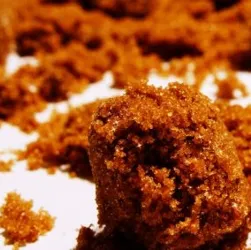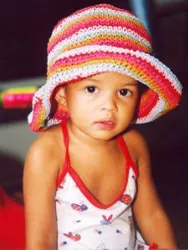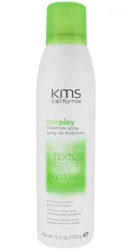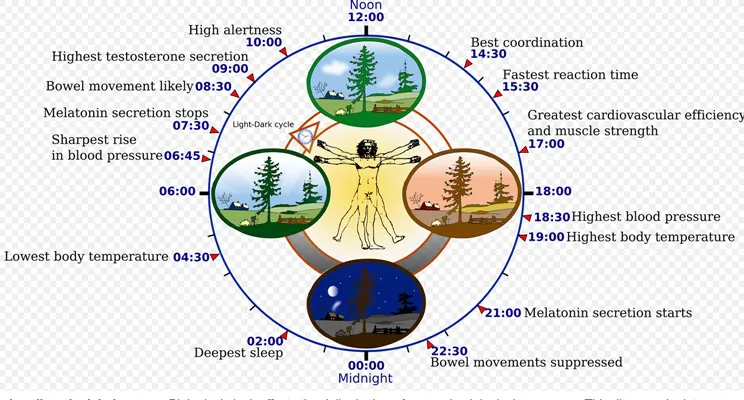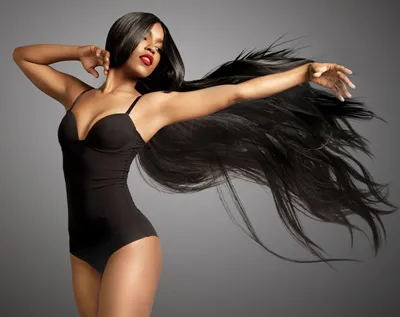
Combating Dry Scalps - Helpful Hints
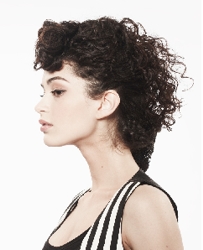 Often the changing of the seasons can usher in scalp and strand problems. Once common problem is dry scalps which can result in itchiness, flaking and other issues such as limp or misbehaving tresses.
Often the changing of the seasons can usher in scalp and strand problems. Once common problem is dry scalps which can result in itchiness, flaking and other issues such as limp or misbehaving tresses.
When the scalp is stressed the rest of the hair will suffer as a result. It's like having a crumbling foundation of a house. No matter how great the rest of the house if, it the foundation collapses you know the rest of the story.
(Image of naturally curly model - Barbara Lhotan - All Rights Reserved - HairBoutique.com and Barbara Lhotan)
Natural Curls, Waves & Kinks Often Have Dry Scalp Challenges
Although all types of textures of hair can experience dry scalps, those with natural textures such as waves, curls and coils may have more challenges with a dry scalp from time to time because of the natural shape of their hair and the way moisture is naturally lost from their tresses.
Combat Dry Scalps Both Internally And Externally
You can combat dry scalps both externally and internally. If you want to approach a dry scalp from a holistic viewpoint, you may want to design a program which combines both internal as well as external treatments.
Ways to combat dryness internally:
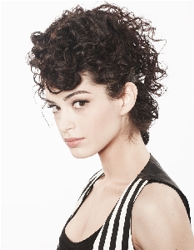 1. Make sure you are drinking enough water to keep your skin, scalp, hair and body well moisturized.
1. Make sure you are drinking enough water to keep your skin, scalp, hair and body well moisturized.
3. Eat foods which are known to moisturize the body including avocados, olive oil. Apply to your salads or other foods.
Combat dryness externally
1. Investigate hot oil options for scalp treatments.
It's important to remember that hair oils are oily and when applied to the entire head MAY leave tresses feeling greasy. Start with oil treatments for your scalp first. If you love the results you can opt for extending the treatments to the rest of your head.
Best oils? There are literally dozens of oils which can be utilized. Start with a jojoba based treatment, either a commercial one or a home-made one. Why jojoba? It's one of the lightest oils and is very compatible with the human scalp. If you find it's not strong enough experiment with Extra Virgin Olive Oil (EVOO), coconut or even macademia nut oils.
2. Evaluate your cleansing routines and discuss your options with your professional hairstylist.
 Ask yourself the following questions:
Ask yourself the following questions:
1. Are you using hot water which can dry out the scalp?
3. Are you shampooing your hair every day?
5. Do you utilize rinse-out, leave-in or deep conditioners? Do you apply them to the scalp or the entire head of hair?
Dry Scalp Causes
There are a wide range of potential dry scalp causes ranging from allergic reactions to medications or foods, too much sun, environmental conditions (wind, humidity) or over washing and too much heat styling. The weather or dry weather has a proven direct impact on your scalp.
Dry scalps can occur as a result of chemical hair treatments ranging from highlights, lowlights, color, relaxers, straighteners or other chemical treatments.
 Consider the following helpful options:
Consider the following helpful options:
1. Switch from a daily shampoo routine to a bi-weekly one. When possible extend your shampoo treatments to once a week or even twice a month.
3. Experiment with conditioner only (CO) washes which removes dirt and debris but keeps hair moist. Don't forget to use deep conditioners or honey packs applied directly to the scalp.
5. Always finish with a cool/cold water rinse when possible. The cool water will close the pores because hot water opens the pores.
7. Avoid directing hot blow dryers towards scalp as much as possible.
Avoid brushes and combs with sharp teeth or bristles which can scratch and damage sensitive scalps. Examine all hair accessories to make sure they do not have sharp edges.
Forget the wive's tale that you need to brush your tresses 100 strokes a day. Not only is this terrible advice for naturally textured tresses (curls, waves, kinks), it can damage the scalp.
More Information
Please follow me on Twitter at: http://Twitter.com/HairBoutique. I look forward to meeting new people from all walks of Twitter and learning from their Tweets. Visit us at Hairboutique.com located at: http://www.HairBoutique.com, on Facebook, MySpace and YouTube.
Thank you for visiting us at The HairBoutique Blog and for leaving your comments. They are very much appreciated. We apologize in advance but must remove any direct advertisements or solicitations.
Social Media Network Information
Please follow us on Twitter at: https://Twitter.com/HairBoutique. I look forward to meeting new people from all walks of Twitter and learning from their Tweets.



